
One of the best definitions of fear, is that made by the well respected poultry scientist R. Jones. He defines it as “fear is regarded as an adaptive state, with fear behaviour functioning to protect the animal from injury.” Essentially, what he is saying, is that fear is a protective mechanism to an external stimulus such as danger, or harm; whether that be real or perceived.
Fear, is a mechanism which helps keep an alive, and can be innate (born with) or acquired (learnt). Jones goes on further to say “Fear is often adaptive in ideal circumstances, but neither we nor the animals in our care live in a perfect world. In reality, many farming systems prevent the animals from responding in an adaptive fashion to potentially threatening stimuli. In these circumstances, fear can be a powerful and potentially damaging stressor, particularly if it is intense or persistent. Minor fear within tolerable limits will do the bird no harm. But both acute and chronic fear can seriously harm welfare and performance of poultry”.
Factors which interfere with the well-being of the bird are called stressors, or stress factors, and the result of the response, or its effort, to that bird while trying to cope with the stressor, is what constitutes stress. A stressor can be any number of things, ranging from tension, anxiety, worry, fear, uncertainty, problems, threats, discomfort, pressure, strain, challenge, difficulty, distress, hardship, burden, effort or struggle.
This story is from the {{IssueName}} edition of {{MagazineName}}.
Start your 7-day Magzter GOLD free trial to access thousands of curated premium stories, and 9,000+ magazines and newspapers.
Already a subscriber ? Sign In
This story is from the {{IssueName}} edition of {{MagazineName}}.
Start your 7-day Magzter GOLD free trial to access thousands of curated premium stories, and 9,000+ magazines and newspapers.
Already a subscriber? Sign In
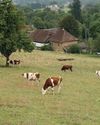
How to Buy a Smallholding in France- Long-time smallholder Lorraine Turnbull looks at the practicalities of moving to rural France
Aspiring smallholders are continually thwarted by the prices of smallholdings and property with land located within the UK. Even the humblest croft in Scotland comes with a substantial price tag and conditions which would make even an adventurous wannabee consider carefully. But all is not lost. For those willing to take the adventure of a lifetime, there is always Europe, and one of the most popular places is France.

Meet the Bournemouth goats and their supporters
These capricious animals are hard workers preserving the natural habitat
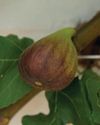
Still warm enough to sit outside with a Pizza
Henrietta Balcon uses fresh figs to create an unusual dish at Harvest time
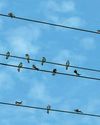
Goodbye to the birds of spring and summer
If you look and listen you might be able to see them preparing to leave says The RSPB
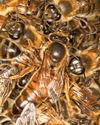
Get ready for the colder weather in the warmth of late summer
Claire Waring advises on doing the best to make sure your colonies survive until next spring
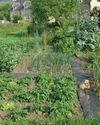
Preparing the Veg Patch for Winter
Lee Senior says, a well-run plot can excitingly continue to produce good quality, tasty, fresh food for much of winter
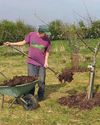
Time to prepare to plant your orchard
Wade Muggleton, smallholder and author of The Orchard Book, shares his practical experience so you can create your own fruit collection
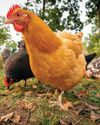
Choosing feed for the autumn
As autumn approaches, Joanna Palmer, nutritionist at the Smallholder Range, offers advice on choosing the right feed to support your adult birds through their annual moult and ensure your young birds grow and finish well at this time of the year.
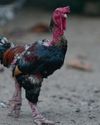
Vet advice from an experienced poultry vet
Reflecting on how much the humble hen has helped people world wide plus advice on stopping the scourge of red mite
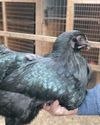
Give your hens some support
Paul Donovan looks at the right and wrong ways of handling birds